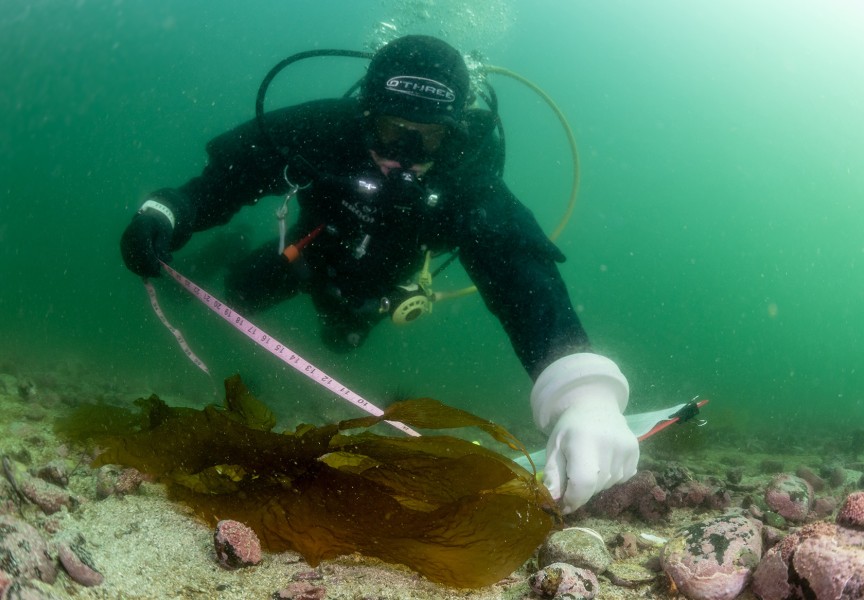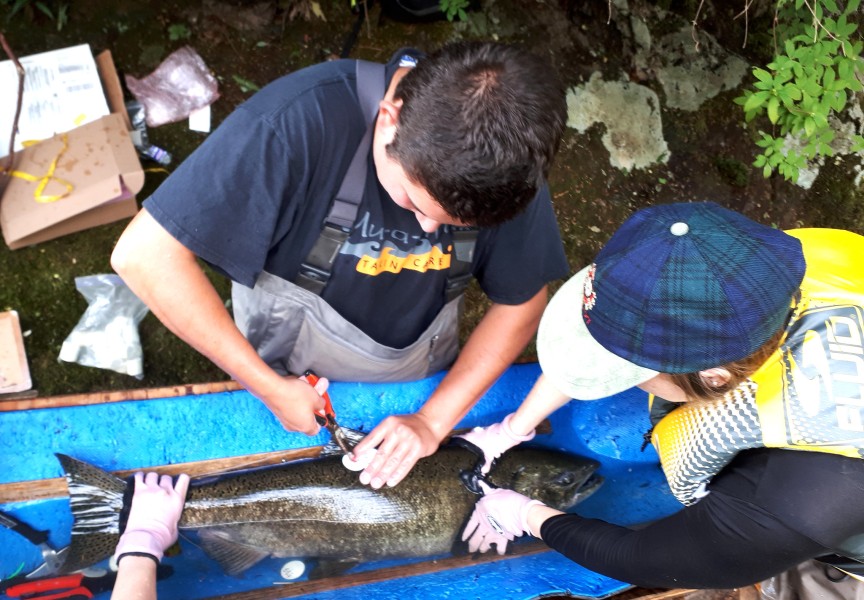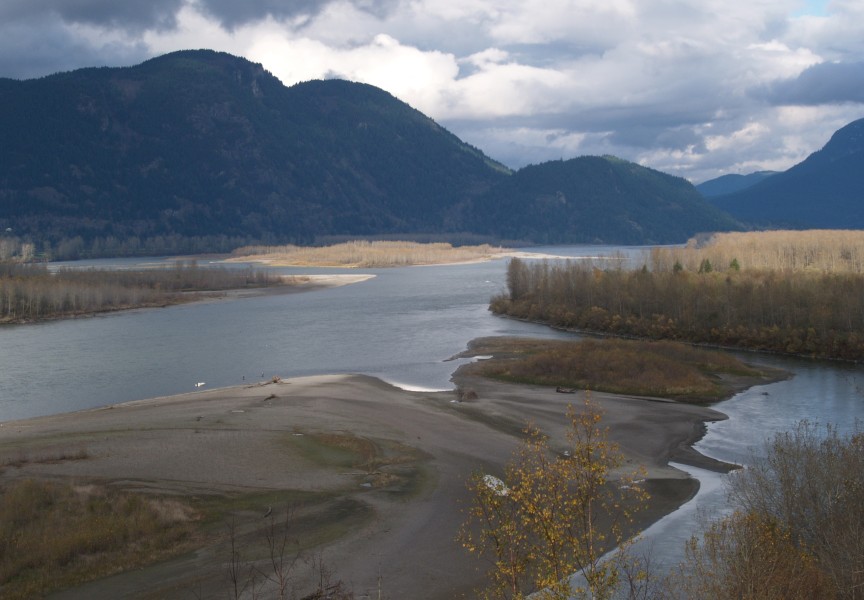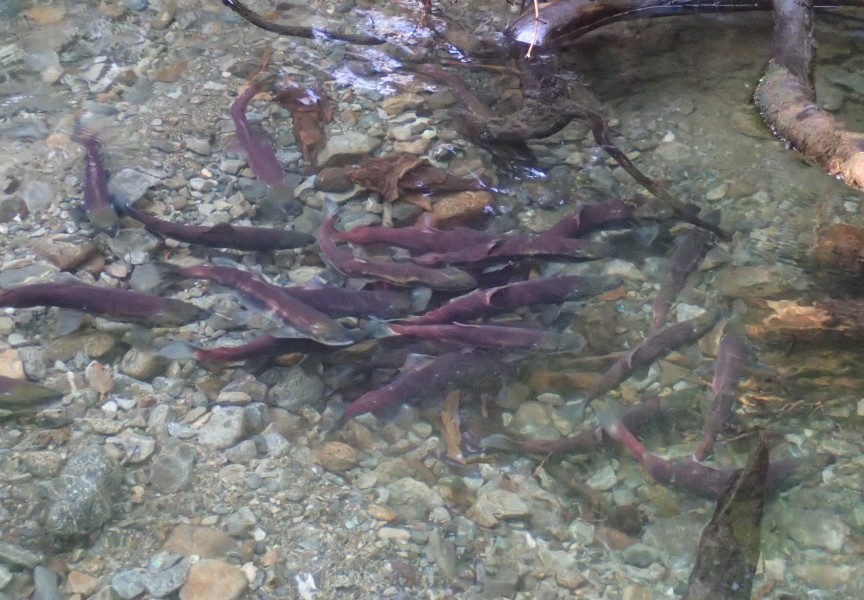Flurer Smokery is offering the traditional flavours of the West Coast to Port Alberni’s Fisherman’s Harbour with their hot smoked seafood products and processing plant.
Flurer Smokery has been a Vancouver Island staple for seafood lovers for the past 12 years. The company opened in Campbell River in 2009 by Kelly and Brian Flurer and the couple worked hard to make the wholesale and custom value-added processing plant internationally known.
“We shut the plant down in Campbell River back in January 2020 and moved everything down [to Port Alberni] and we didn’t actually get in and started until the end of August,” Kelly said.
Flurer smokery now operates out of the Dock + food hub on Harbour Road, becoming one of the facility’s anchor tenants.
“We’re happy we moved here, we’re thrilled to be a part of the community now. It’s something that the community really seemed to have needed,” Kelly said. “The Dock + has been amazing. The Port Authority and the City of Port Alberni have definitely welcomed us with open arms and made us feel really comfortable moving here. I don’t think the Port Authority realized what the demand was for a federally registered building.”
Flurer Smokery is Aboriginal owned and operated, federally registered and HCCAP certified, which allows the company to ship products across Canada and internationally.
Flurer offers raw processing, boneless fillets, burger portions, skewers, and hot smoked products. All of their products are natural with no chemicals, dyes or preservatives.
Brian is from the Dene Nation, about 200 kilometres north of Yellowknife, and Kelly grew up in Campbell River in a logging camp. Brian and his family eventually moved to Campbell River in 1982 and the couple relies on traditional recipes from the West Coast for their hot smoked products. Together they have more than 50 years of combined experience in the fisheries and aquaculture industry.
“We use a brown sugar and salt brine. It was a recipe that was created on the coast here by a lot of the local people way back when I was a little kid, some were First Nations,” Kelly said. “It’s very, very traditional to what the West Coast is.”
Kelly said it’s common for smoking companies to use a liquid brine which is adopted through the cold smoked product.
“Cold smoke is European so it has nothing to do with the West Coast here,” Kelly said. “The fish with a liquid brine tends to come out with a very rubbery texture where ours is more like baked or barbecued, very much more the traditional way of the West Coast.”
Port Alberni’s All Mex’d Up taco shop features a smoked salmon taco using Flurer smoked fish and Double R Meats is offering the smokery’s products as well.
Flurer Smokery has a license to purchase and Kelly said they are interested in buying products from commercial fishers.
“People are coming here, they can come right here,” Kelly said. “We also do a lot of sport fish so people who catch their own can bring it in, we cut it up, vacuum pack it or take it through to a smoked product.”
All of Flurer’s products are boneless and skinless and they can typically have an order ready for customers in seven to 10 days. They’re licensed for fresh, frozen, semi preserved and ready-to-eat fin fish and shell fish.
The processing plant has two smokers than can hold up to 400 pounds, a freezer that can hold up to 300 totes and a blast freezer that can hold around 24 totes.
“We’ve been working a lot with some of the local fishermen on and around the island and we have done quite a bit of the native food fish through the chum season last fall,” Kelly said. “We had some of the members bring their fish in from the Tseshaht First Nation and we’ve had a few people come over from Ucluelet, Tofino and also out of Bamfield.”
Flurer Smokery also now operates the ice house at Fisherman’s Harbour, where people can come for ice.
“We’re just waiting for a couple pieces of hardware to come in,” Kelly said. “The Port Authority has invested a considerable amount of money to get the machines working and it’s federally certified.”
Dave McCormick, director of public relations and business development with the Port Alberni Port Authority (PAPA), said Flurer Smokery brings industry leading seafood products, seafood product development and processing expertise to the Dock + and entire Alberni Valley.
“Even before we learned about the funding potential and program around provincial food hubs…we were fans of their product and so with the old fish plant that was dormant we had been recruiting Brian and Kelly for a while,” McCormick said. “When the funding came up and the opportunity to develop the food hub with a few anchor tenants in the seafood space, of course they were the first people that we called.”
The Dock + food hub was built through a partnership with PAPA and the City of Port Alberni with funding support from the province of British Columbia and Island Coastal Economic Trust (ICET). The space also includes a commercial kitchen that businesses or individuals can rent out.
“We’ve got pretty much every inch of space leased out to anchor tenants, we call them micro processing plants,” McCormick said. “Each of the businesses are at various stages of set up and operation in their areas.”
Other tenants at the Dock + include Cascadia Seafood, Forest for Dinner, Canadian Seafood Processing (Effingham Oysters), Nova Harvest and Tastes Local.
McCormick said having micro-processing space available in the Alberni Valley is highly advantageous for future development of the aquaculture sector and for businesses to reduce barriers in expanding their processes and operations.
“The potential of the Alberni Inlet and Barkley Sound is so untapped. The blue economy is the wave of the future and Port Alberni is ideally located for that,” McCormick said, noting that the community has a long history in the seafood sector. “It’s part of our culture and will be part of our future and that’s what the dock supports.”
McCormick added that the Dock + and commercial kitchen have received Canada and province-wide recognition.
“The kitchen itself is an opportunity as a business incubator for people to expand and grow their food processing and food making,” McCormick said. “To have that permitted commercial kitchen space reduces the barriers and allows more people to enter business and expand their business opportunities.”








